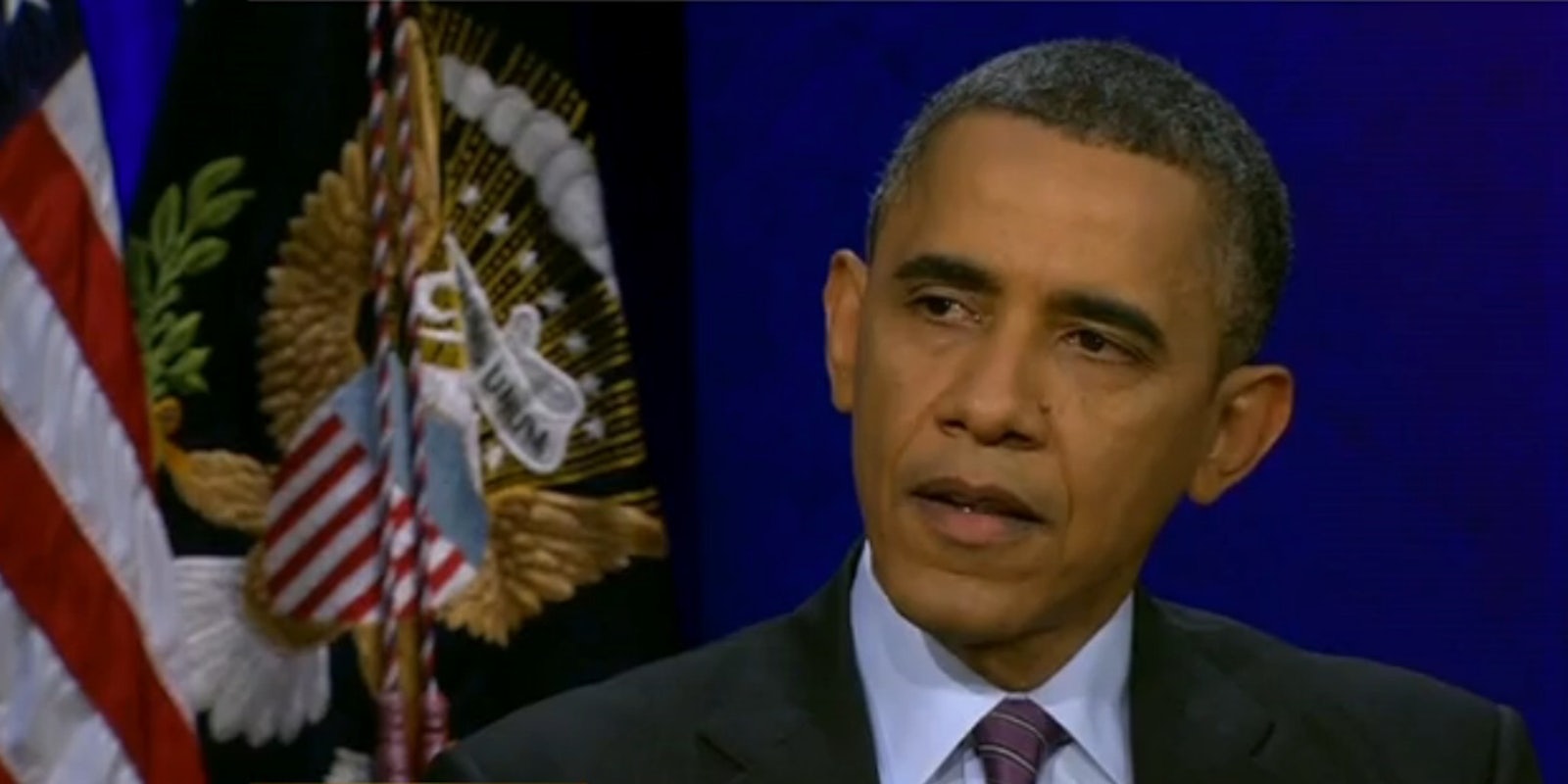President Obama finally made a concession Thursday night, six months after it became an issue.
Edward Snowden, the National Security Agency contractor who in June fled the country and leaked an embarrassing cache of documents detailing agency surveillance programs, maybe kinda had a point.
“The Snowden disclosures have identified some areas of legitimate concern,” Obama admitted in a pretaped interview with MSNBC’s Chris Matthews.
Obama didn’t clarify which of those concerns he considered legitimate, but it’s still a stark departure from his earlier comments, when he refused to acknowledge Snowden was anything but a fugitive with a misguided sense of activism who spilled state secrets. Back in June, when PBS’s Charlie Rose asked Obama if he had any “problem” with “what the NSA has been doing,” Obama responded “I don’t.” He refused to say much about Snowden as a person, as he was—and remains—wanted on espionage charges by the U.S.
At the time, the world had only learned of two major NSA programs through Snowden: PRISM, which lets the agency easily tap the world’s accounts through companies like Google and Yahoo, and that the agency collects phone records on most Americans. But there’s been a barrage of more programs since then: the NSA can look at practically anyone’s Internet activity. That it can break online encryption. That it stores billions of records every day of people’s locations through their cell phones. And, the one that seems to cost Obama the most political points, that the NSA directly spied on allied leaders, a fact Obama was allegedly unaware of.
Obama conceded to Matthews that Americans upset with the NSA—who, as a rule, skew younger—were justified. “Young people, rightly, are sensitive to the needs to preserve their privacy and to maintain Internet freedom,” he said.
The President did, however, acknolwedge what is becoming a common theme in many of the NSA’s most sophisticated programs: that they may not intentionally target Americans in bulk, but the rest of the world is fair game.
“Outside of our borders, the NSA’s more aggressive,” he said. “It’s not constrained by laws.”
Screengrab via MSNBC.


